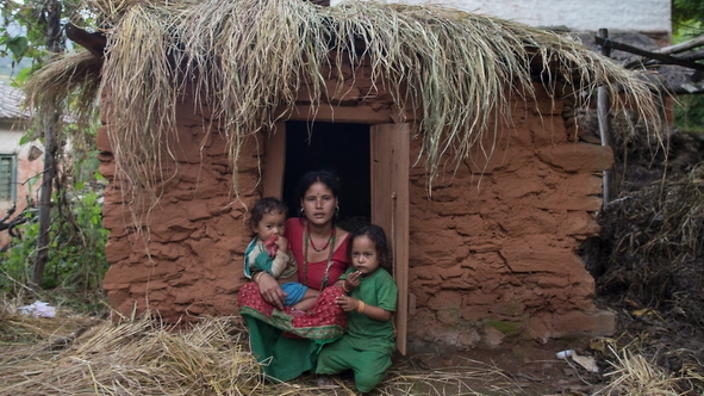KAILAI: During monsoon women in Kailai face more problems during menstruation than at regular times. The compulsion of spending first four to five days in isolation during their periods is never of their comfort and the situation worsens during rains.
Chhaupadi, the traditional harmful practice that banishes menstruating women and new mothers from the family home, is still observed in several parts of mid and far-west Nepal, despite its criminalization in 2017 followed by its ban in 2005.
Radha Rawal of Batanpur in Tikapur-8 takes help of Sangini, a three-monthly contraceptive injection in this season so that she could be free from the compulsion of going to Chhaugoth, a menstruation hut, for the last three months as the contraceptive postpones the period. Traditionally, makeshift huts or cowsheds are used for practicing the Chhuapadi.
“There is a more risk of snakebite and encountering other sorts of poisonous insects during the rains. Additionally, we have to endure more heat in Chhaugoths which are poorly ventilated or are windowless in this season,” she said, adding that she uses the birth control injection as an immediately available means of preventing the risk of negative consequences in Chhaugoth. Her spouse has been India since years in the course of employment. She has been taking help of Sangini for years to avoid the compulsion of staying in Chhaugoth mainly during rains.
In the beginning days, her mother-in-law would question her about the reason behind the postponement of her period for months. As Radha shared now the mother-in-law has well understood about her situation and favors her decision to use the birth control shot.
“I do not intervene in her decision as it is really difficult for women to spend at least four-five days in Chhaugoth during rains,” said mother-in-law Dhansari Rawal.
Manakala BK of Rajipur in Tikapur-2 feels very uncomfortable in Chhaugoth. “A small hut with no proper facilities for air passage makes me feel that I am being suffocated to death,” she lamented.
All women like her in the village observe the Chhaupadi. But Saraswoti Tamata of Rajipur is an exception who once dared to unlearn this practice as she says she loves her life more than the culture. But her decision to break the tradition long embedded in the society was not cost-free.
She had been excluded by society. Neighbors stopped eating at her home. She was criticized for violating the ‘norm’. “They later stopped visiting my house.” Now, she observes the ill-practice against her will, though she knows that is just a superstition. “I know menstruation is not a sin as interpreted by the society and menstruating women are not untouchable, but I am not in the position of revolting against it going against the society,” she added.
According to local woman volunteer Chandrawati Sharma, women are questioned by the society when their menstrual cycle stops sometimes due to some health issues.
The cases of Violence against Women (VAW) were occurring in various remote places in Tikapur such as Tikapur Municipality ward no 2, 6, 7, 8 and 9 in the name of Chaupadi.
Women rights activist Nirmala Kadayat underscored the need to formulate policy by the political parties that s/he who practices Chuapadi will be negated from the leadership role in politics.
She pointed out the need for the local government, local organizations and political parties to launch awareness drive on health issues in every village.
Tikapur Municipality Deputy Mayor Keshari Bista said the details of the cow shed where Chupadi is practiced was being collected in every wards of the Municipality. “We will collect the data and will devise a program for reducing Chaupadi,” she said, adding, “We have targeted those families who practice Chuapadi. They will be deprived of the government facilities until they stop practicing Chaupadi.”
This measure will be first implemented in the teachers and government employees’ houses, according to Deputy Mayor Bista.









Comment